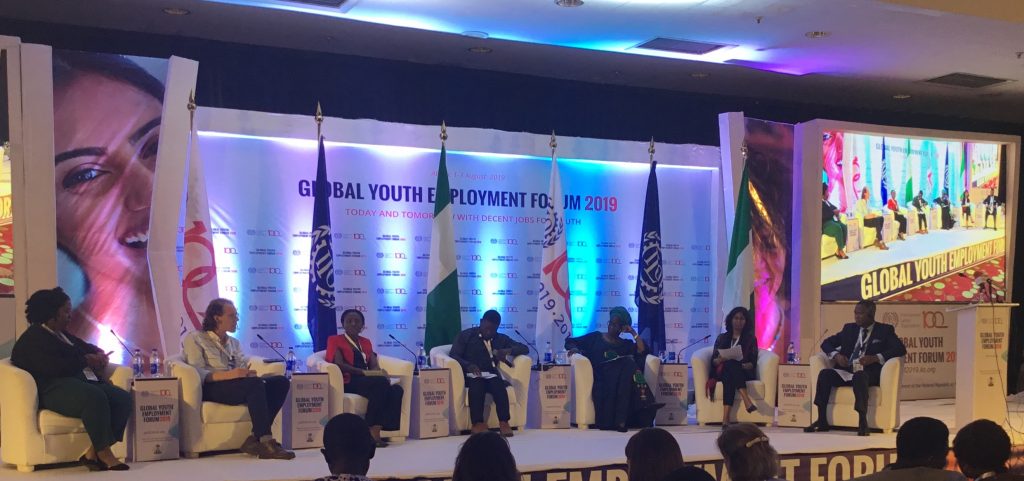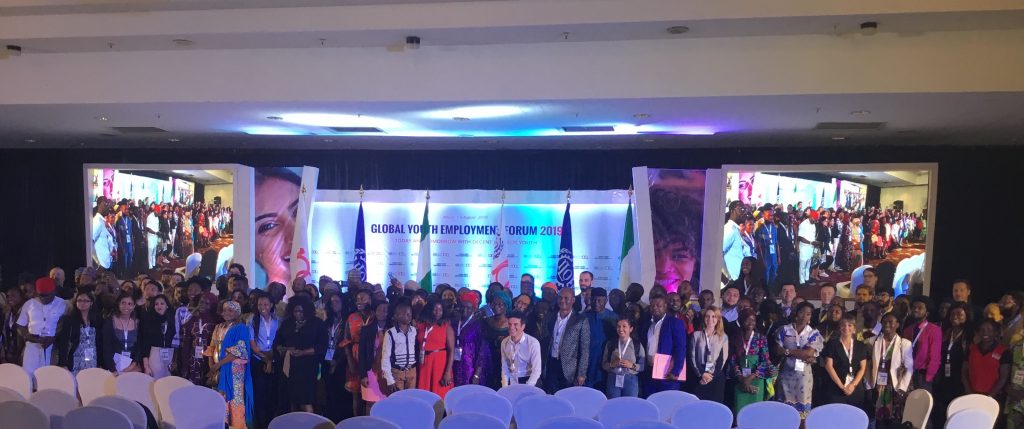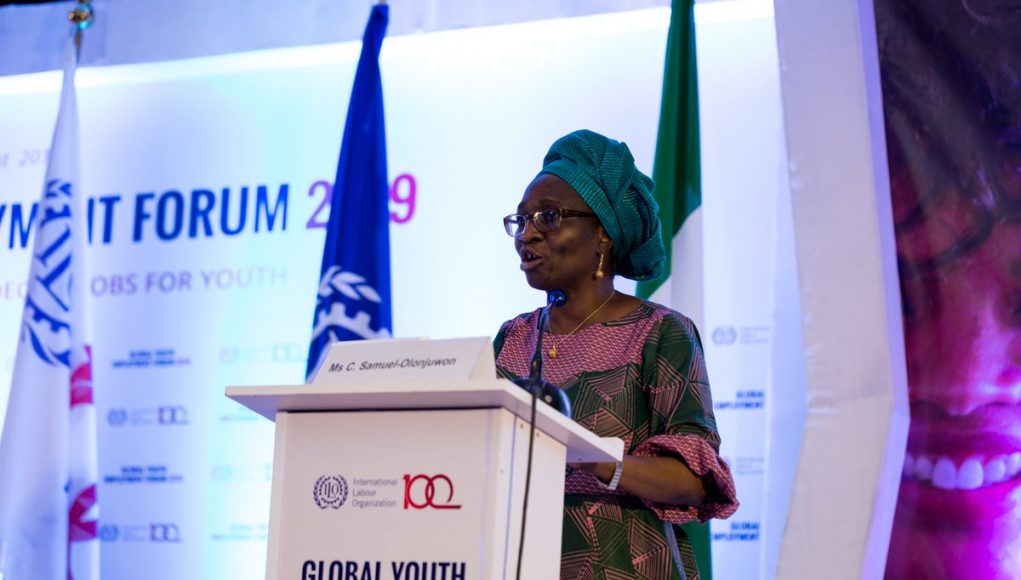By Obioma C. Appolos
The International Labour Organisation’s (ILO) Assistant Director General and Regional Director for Africa, Cynthia Samuel-Olonjuwon, says that Nigeria and other African countries are not productively meeting up with the challenge of job creation because the labour and employment ministries are weak.
She also said that unemployment rate and the security challenges associated with it, will continue to be on the increase in Africa because government’s across the continent unfortunately run labour and employment ministries as third and fourth tier ministries, which makes them unproductive.
While she entreated Nigeria government and her counterparts in Africa must equate and give labour and employment ministries the same attention given to interior, finance, petroleum and others over the years, in order to bring the monstrous enemy of the state to it kneels. She warned that poverty and worst vices will bedevils the country the more should creation of decent jobs not given productive and adequate attention.

“Our ministries of labour and employment are very weak. I am not just talking about Nigeria here but in Africa generally. They are weak in terms of budgetary allocations, weak in terms of the priority attached to them by the government, and also in performance.
“We cannot address the complexity issues of employment promotion in Africa if our ministries of labour and employment are weak. So there has to be effective engagement, not to see ministries of labour as third tier, fourth tier ministries but seeing it as in the same level as ministries responsible for finance, defense etc. Because if we don’t tackle the issue relating to young people in terms of decent jobs for them, the consequence will be more security challenge. We can see what is happening in different part of the country already.”
Speaking to journalists at the sideline of the recently concluded Global Youth Employment Forum, organized by the International Labour Organisation (ILO) and held in Abuja, Mrs Cynthia went on to say that job creation is among the top most responsibility of government. She therefore called on government to recognize the fact, desist from making promises but engage in productive ventures to create not any job but decent jobs especially for the youth.
“In Nigeria, we need to focus on generating demand for jobs. How to create demand for jobs particularly for young people, should be our focus. In this regard, key things to do; is the recognition that the responsibility for job creation, not just anyhow job but decent job is entirely government’s. And the responsibility has to be across the board. Meaning that every department and ministries of government has to be accountable, has to have responsibility for job creation, and a serious performance scale, not just the ministry of labour alone.
“Why am I saying this? Job creation is what we need to achieve the SDGs. There is no way you can go out of poverty if you don’t have good jobs. If you don’t have a decent job, the little thing or job you do cannot get you out of poverty because it is not sustainable.
“It is crucial that government have politically said that job creation is very important but it is more important to translate the political statement into action. First by integrating them into the national planning frameworks and essentially into budgets. Because it is not just to say that it is in the national planning framework or national development plan.
“In action, it should be what is in the budgetary allocation. And it should not just be in one department but across the board. And there has to be a way of seeing how the different departments are actually contributing to the implementation.” She stated.

Furthermore, she said; “There should also be a look at enhancing the employment intensity of investment. We talk about the environmental impact of our investments, are we also talking about the employment impact of our investment? When investors start coming into this country, is the quality of the jobs they create a key determinant in what we agreeing with them? That is very significant part of all the issues around the demand side.
“We need to look at skills. Skills starts from the basic education. I am proud to say that I went to primary, secondary and university in Nigeria. And I am now operating in the global space base on the kind of training I got. But with advancement of the world today, how are we ensuring that the quality of education we are providing for our young people is such that will equip them to be able to be not only change makers and innovators in Nigeria, but innovators that would drive the agenda continentally and globally.
“Also, with the rapid changes in the requirement of work, there will be many transitions. So there should life long learning. And this is something governments, business and other stakeholders have to commit to. There should be will be promotion skilling, risk skilling, ups skilling and so on. The mechanism to make the skills available to every body has to be in place. And that is what the Nigeria government need to be investing in.
“In addition to all these I have said, we need to have the necessary investment in labour market information. We need to have the necessary investment in skills anticipation. For the need of the labour market now, what structures do we have to bring employers of labour to our country. There is need for businesses, government and institutions of high learning to seat down and discuss what do we need as business, as employers and what can the high institutions do to make that happen.
“It is absolutely not good that institutions of high learning have the same curriculum they had 20 years ago when I was in secondary or primary schools. Unfortunately they don’t even see their relevance as being key partners in the labour market dynamics. So we need to look at that. I know many years ago they had national manpower board that provided that space. Is it still there, is it effective?
“The second one is labour markets information system. We don’t have in many African countries labour market information system. How is it translating into policy formulation, how is it translating in the monitoring of the policies. How is it informing into the skills we need for the future. Are we asking, 20 years down the line, what kind of skill will Nigeria need. How are we preparing our people to be able to have those skills.
“Some of those skills enhancement interventions may not be available here, but how are we engaging strategically with other countries. I remember when I was in the university, there were opportunities for those who were studying in areas where we didn’t have the expertise to teach here to go study them abroad and return.”






























